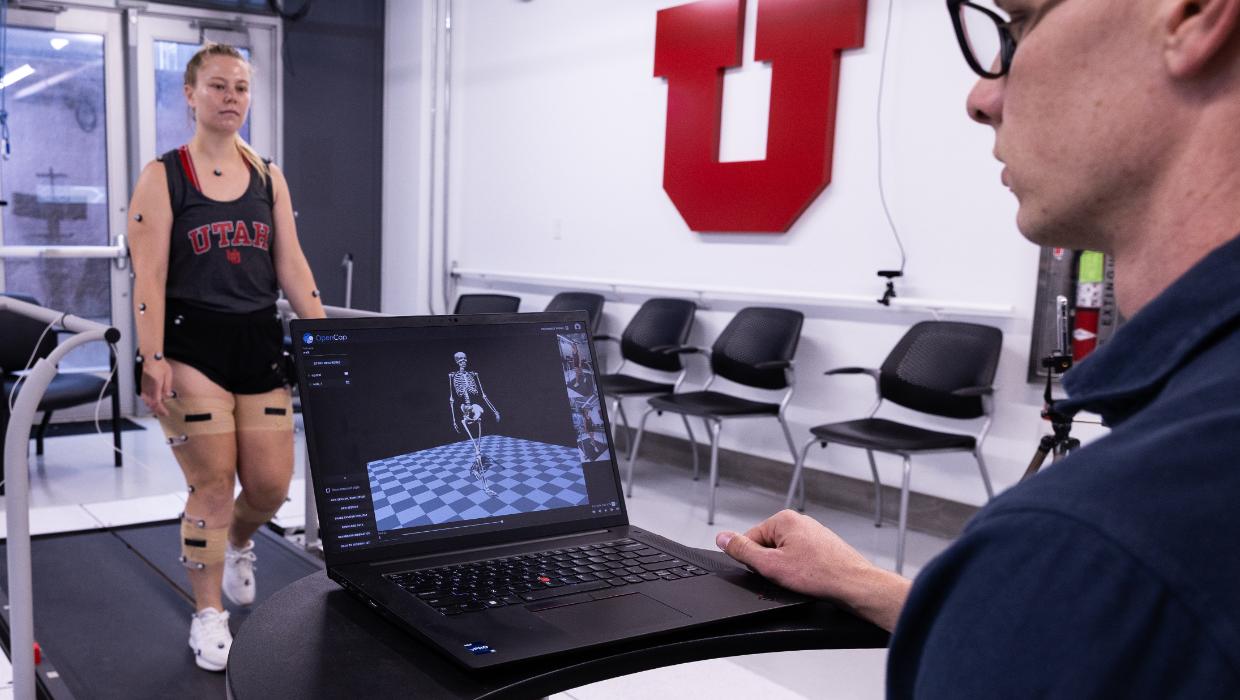Health
Adjusting Your Walk Could Significantly Alleviate Knee Pain

A recent study published by researchers at the University of Exeter indicates that a small adjustment in walking mechanics can help alleviate knee arthritis pain. The findings suggest that modifying one’s gait may be an effective strategy for managing discomfort associated with this common condition.
The study involved a group of participants diagnosed with knee arthritis. They were instructed to alter their walking patterns by focusing on specific movements that lessen the impact on their knees. Over a period of several weeks, the participants reported a noticeable decrease in pain levels, highlighting the potential of gait modification as a simple yet impactful intervention.
Understanding the Impact of Gait Change
Knee arthritis affects millions globally, often leading to chronic pain and reduced mobility. Traditional treatments typically include medication, physical therapy, and in severe cases, surgery. However, the research from Exeter introduces an accessible alternative that may complement existing treatments.
By changing their gait, participants learned to distribute weight differently across their joints. This shift not only reduced immediate pain but also contributed to long-term benefits, such as improved joint function and enhanced quality of life. The study’s lead researcher emphasized the significance of these findings, stating that even minor adjustments in walking can lead to significant improvements in pain management.
The participants’ feedback revealed that altering their walking habits was both manageable and effective. Many expressed relief at being able to engage in daily activities with reduced discomfort. This aspect of the research underscores the importance of empowering individuals to take charge of their health through simple behavioral changes.
Future Implications for Treatment
The implications of this study extend beyond individual pain management. As healthcare systems worldwide continue to seek cost-effective strategies for treating chronic conditions, initiatives that focus on lifestyle changes could play a pivotal role. Encouraging patients to modify their walking patterns may lead to decreased reliance on medication and lower healthcare costs associated with knee arthritis.
Physical therapists may also benefit from integrating gait training into their practices. As research continues to validate the effectiveness of gait modification, it could become a standard recommendation for those suffering from knee pain.
The findings from the University of Exeter study will be presented at upcoming health conferences, aiming to raise awareness among healthcare professionals about the potential for gait change in arthritis management. This research opens the door for further exploration into how simple adjustments in daily activities can enhance overall well-being.
In conclusion, while knee arthritis presents significant challenges, the study illustrates that minor adjustments in how one walks can lead to considerable pain relief. As more individuals seek holistic and non-invasive solutions, the focus on gait modification could become an essential component of knee arthritis treatment strategies.
-

 World4 months ago
World4 months agoTest Your Knowledge: Take the Herald’s Afternoon Quiz Today
-

 Sports4 months ago
Sports4 months agoPM Faces Backlash from Fans During Netball Trophy Ceremony
-

 Lifestyle4 months ago
Lifestyle4 months agoDunedin Designers Win Top Award at Hokonui Fashion Event
-

 Entertainment5 months ago
Entertainment5 months agoExperience the Excitement of ‘Chief of War’ in Oʻahu
-

 Sports4 months ago
Sports4 months agoLiam Lawson Launches New Era for Racing Bulls with Strong Start
-

 World5 months ago
World5 months agoCoalition Forms to Preserve Māori Wards in Hawke’s Bay
-

 Health4 months ago
Health4 months agoWalking Faster Offers Major Health Benefits for Older Adults
-

 Lifestyle4 months ago
Lifestyle4 months agoDisney Fan Reveals Dress Code Tips for Park Visitors
-

 Politics4 months ago
Politics4 months agoScots Rally with Humor and Music to Protest Trump’s Visit
-

 Top Stories5 months ago
Top Stories5 months agoUK and India Finalize Trade Deal to Boost Economic Ties
-

 Health2 months ago
Health2 months agoRadio Host Jay-Jay Feeney’s Partner Secures Visa to Stay in NZ
-

 World5 months ago
World5 months agoHuntly Begins Water Pipe Flushing to Resolve Brown Water Issue









